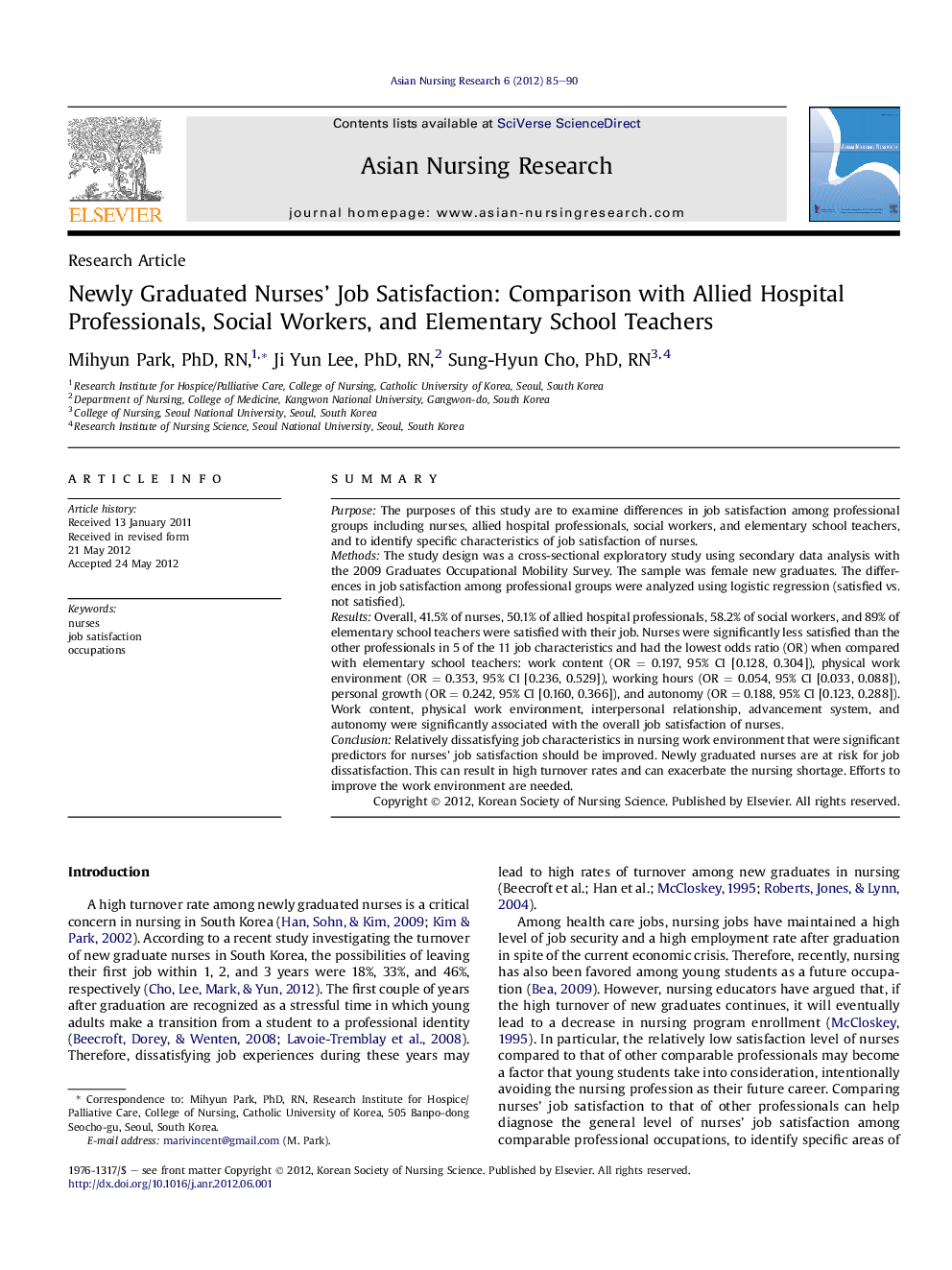| Article ID | Journal | Published Year | Pages | File Type |
|---|---|---|---|---|
| 2645105 | Asian Nursing Research | 2012 | 6 Pages |
SummaryPurposeThe purposes of this study are to examine differences in job satisfaction among professional groups including nurses, allied hospital professionals, social workers, and elementary school teachers, and to identify specific characteristics of job satisfaction of nurses.MethodsThe study design was a cross-sectional exploratory study using secondary data analysis with the 2009 Graduates Occupational Mobility Survey. The sample was female new graduates. The differences in job satisfaction among professional groups were analyzed using logistic regression (satisfied vs. not satisfied).ResultsOverall, 41.5% of nurses, 50.1% of allied hospital professionals, 58.2% of social workers, and 89% of elementary school teachers were satisfied with their job. Nurses were significantly less satisfied than the other professionals in 5 of the 11 job characteristics and had the lowest odds ratio (OR) when compared with elementary school teachers: work content (OR = 0.197, 95% CI [0.128, 0.304]), physical work environment (OR = 0.353, 95% CI [0.236, 0.529]), working hours (OR = 0.054, 95% CI [0.033, 0.088]), personal growth (OR = 0.242, 95% CI [0.160, 0.366]), and autonomy (OR = 0.188, 95% CI [0.123, 0.288]). Work content, physical work environment, interpersonal relationship, advancement system, and autonomy were significantly associated with the overall job satisfaction of nurses.ConclusionRelatively dissatisfying job characteristics in nursing work environment that were significant predictors for nurses' job satisfaction should be improved. Newly graduated nurses are at risk for job dissatisfaction. This can result in high turnover rates and can exacerbate the nursing shortage. Efforts to improve the work environment are needed.
